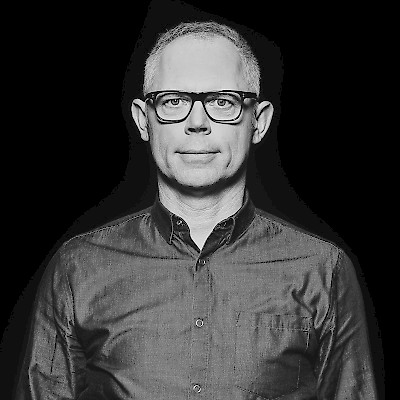
Martin Kiel
In the 1980s, he was advised against his wish to become a forester. The forests are sick, he was told, and foresters probably superfluous in the future. So, in 1989 he started to study biology, German literature, philosophy, archaeology and art history at the Ruhr University Bochum. In 1995 he wrote his dissertation on Christoph Ransmayr’s “The Last World” and developed a model for working on postmodern phenomena. Following the postmodern paradigm of Leslie A. Fiedler’s “Cross the Border – Close the Gap”, Martin Kiel tries to build bridges from economic to academic contexts, from conditional to unconditional space (J. Derrida). He has worked in various management roles (Thalia, Douglas) and areas that mostly faced digitization or had transformations in processes and organizations as a task. He pursued teaching and research activities as visiting professor at the Otto-von-Guericke-University Magdeburg, the Zollverein School of Management & Design Essen, the Pepperdine University in Malibu, USA, the Ruhr University Bochum, the University of Münster and the University of New Mexico in Albuquerque. In the summer of 2019 he again joined the German Summer School in Taos, New Mexico as a visiting professor with a project in the vein of Aby Warburg. Martin Kiel is currently head of the Dortmund office for codecentric AG and director of the think tank the black frame. Since 2015 he teaches communication theory at the Berlin University of the Arts. His research focuses on strategy development and narration in cultural studies, digital transformation, and investigative aesthetics. The woods are still alive. For now.
ENDEN FÜR ANFÄNGER – pop up institut „verlernenlernen“
Date: Day 1 – 12:30
Location: Neufert-Mansion, Gelmeroda
Language: German + English
In the 20th century, being avant-garde also always implied: becoming a master of unlearning. Where nothing should stay the old same, one has to, above all, get oneself out of the routine to continue doing things as before. Avant-garde deprogramming fiercely attacked false habits with forgetting, repressing, annihilating, tabula rasa… Unlearning was supposed to mean: making a clear cut and separating once and for all. For the Digital Bauhaus Summit in Weimar Martin Kiel and Stephan Porombka think about more contemporary forms of unlearning But they do not do this by trying to find a general framework for the practice of deprogramming. Rather, with their pop-up institute they programmatically deal with individual cases. Whoever wants to unlearn something, will enter into a research dialogue aimed at developing new exercises und narratives of one’s own learning.
